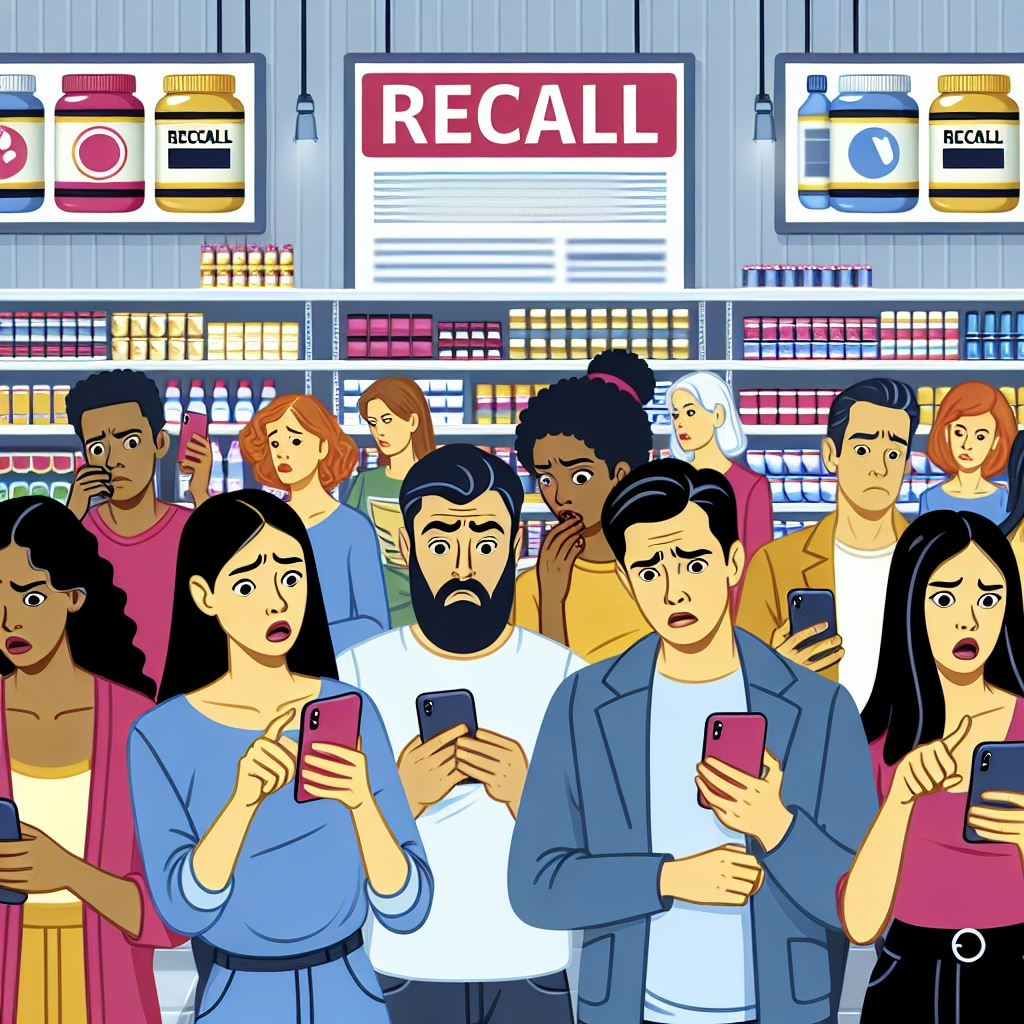In an increasingly complex marketplace, understanding your consumer rights is crucial for making informed decisions and safeguarding your interests. The Consumer Protection Act (CPA) and the Canada Consumer Product Safety Act (CCPSA) are two fundamental pieces of legislation designed to protect consumers in Canada. These laws ensure that consumers are treated fairly and that the products they purchase are safe. This article delves into the key provisions of these acts and how they impact your everyday shopping experiences.
Table of contents
Introduction to Consumer Protection Laws

Consumer protection laws are designed to ensure that consumers are treated fairly and are not subjected to fraudulent or deceptive practices. In Canada, the CPA and CCPSA are two significant statutes that provide a framework for consumer rights and safety. The CPA focuses on fair business practices and the responsibilities of companies toward their customers, while the CCPSA concentrates on the safety of consumer products. These laws provide a safety net for consumers, ensuring that they can make purchases with confidence. Understanding these frameworks can empower consumers to assert their rights effectively.
The CPA was established to protect consumers from unfair trade practices and to promote transparency in the marketplace. It outlines the rights of consumers and the obligations of businesses, ensuring that transactions are conducted fairly. The CCPSA, on the other hand, is primarily concerned with the safety of consumer products. It sets out regulations to prevent the sale of hazardous products and mandates that companies report any safety incidents. Together, these laws form a comprehensive approach to consumer protection, addressing both the fairness of transactions and the safety of products.
These laws are enforced by various governmental agencies, which have the authority to investigate complaints and take action against companies that violate consumer rights. The enforcement of these laws is critical in maintaining consumer confidence and ensuring that businesses adhere to ethical standards. Consumers can also seek redress through the courts if they believe their rights have been violated. The CPA and CCPSA thus serve as vital tools for both consumers and regulators in addressing issues related to consumer rights and safety.
Understanding consumer protection laws is not just about knowing your rights but also about being aware of the mechanisms in place to uphold those rights. By familiarizing themselves with the CPA and CCPSA, consumers can better navigate the marketplace and make informed decisions. This knowledge also empowers consumers to hold businesses accountable and seek remedies when necessary. As such, these laws play a crucial role in fostering a fair and safe marketplace for all.
Key Provisions of the CPA Explained
The Consumer Protection Act (CPA) is a comprehensive piece of legislation aimed at safeguarding consumer rights by establishing clear guidelines for business practices. One of its key provisions is the requirement for businesses to provide complete and truthful information about their products and services. This ensures that consumers have access to all necessary details before making a purchase decision. Misleading advertising or false claims about a product’s features, price, or benefits are prohibited under the CPA, protecting consumers from being deceived.
Another significant aspect of the CPA is the provision for a cooling-off period, particularly in specific types of contracts such as door-to-door sales and timeshare agreements. This allows consumers a set period to reconsider their purchase decision and, if necessary, cancel the contract without facing penalties. This provision is crucial in situations where consumers may feel pressured into making a purchase and need time to evaluate their decision. The cooling-off period varies depending on the type of transaction, thus providing a safety net for consumers in different contexts.
The CPA also addresses issues related to unfair contract terms, ensuring that consumers are not bound by conditions that are excessively one-sided or detrimental. Contracts must be transparent, and any ambiguous terms are typically interpreted in favor of the consumer. This aspect of the CPA is particularly relevant in the digital age, where lengthy and complex terms and conditions are common. By regulating contract fairness, the CPA helps balance the power dynamic between consumers and businesses, promoting equitable transactions.
Enforcement mechanisms under the CPA include the power to investigate and penalize businesses that violate its provisions. Consumers can file complaints with relevant consumer protection agencies, which can then take action to resolve disputes. This may include mediating between parties, imposing fines on businesses, or even pursuing legal action. The CPA thus not only outlines consumer rights but also provides practical means for upholding them, ensuring that businesses adhere to ethical and legal standards.
Understanding the CCPSA’s Role in Safety
The Canada Consumer Product Safety Act (CCPSA) is a pivotal law that addresses the safety of consumer products available in the Canadian market. Its primary aim is to protect the public by reducing the risk of injury from consumer products. The CCPSA establishes a framework for identifying and addressing potential hazards in products, ensuring that they meet safety standards before reaching consumers. This proactive approach helps prevent accidents and injuries associated with unsafe products.
One of the key roles of the CCPSA is to mandate the reporting of incidents related to product safety. Manufacturers, importers, and retailers are required to report any incidents involving their products that result in serious injury, death, or pose a potential risk. This requirement ensures that safety issues are promptly identified and addressed, allowing for timely recalls or corrective actions. The obligation to report incidents fosters a culture of accountability among businesses, emphasizing the importance of consumer safety.
The CCPSA also grants authorities the power to conduct inspections and enforce compliance with safety standards. This includes the authority to order recalls of products deemed unsafe and to impose penalties on companies that fail to comply with safety regulations. These enforcement measures are crucial for maintaining high safety standards and ensuring that businesses prioritize consumer well-being. By holding companies accountable, the CCPSA helps to maintain public trust in the safety of consumer products.
Education and awareness are also integral components of the CCPSA’s approach to consumer safety. The Act promotes the dissemination of information about product safety to both consumers and businesses. This includes providing guidance on the safe use of products and raising awareness about potential hazards. By equipping consumers with knowledge, the CCPSA empowers them to make informed choices and to recognize unsafe products, thus enhancing overall safety in the marketplace.
How These Laws Affect Your Daily Purchases
The CPA and CCPSA have a profound impact on the daily purchases of Canadian consumers by ensuring that transactions are fair and products are safe. When you buy a product or service, the CPA guarantees that the information provided by the seller is accurate and complete. This means you can trust that the product will perform as advertised, and if it doesn’t, you have the right to seek a remedy. This protection is particularly valuable in an era where online shopping is prevalent, and consumers often rely on product descriptions and reviews.
The safety assurances provided by the CCPSA mean that consumers can have confidence in the products they bring into their homes. From children’s toys to household appliances, the CCPSA ensures that these products have been tested and meet established safety standards. This peace of mind is essential for consumers who want to protect their families from potential hazards. In the event of a product recall, the CCPSA’s provisions ensure that consumers are informed promptly, minimizing the risk of injury or harm.
Additionally, these laws empower consumers by providing mechanisms to address grievances and seek redress. Whether it’s a defective product or a misleading advertisement, consumers have avenues to file complaints and hold businesses accountable. This empowerment not only helps resolve individual disputes but also encourages businesses to maintain high standards of honesty and integrity. By knowing their rights, consumers can actively participate in ensuring that the marketplace remains fair and transparent.
In everyday transactions, the CPA and CCPSA serve as a safety net, allowing consumers to shop with confidence. They provide the assurance that businesses are required to uphold certain standards, whether it’s in the accuracy of product information or the safety of consumer goods. By understanding and exercising their rights under these laws, consumers can make informed decisions and contribute to a fairer, safer marketplace for everyone.
The Consumer Protection Act and the Canada Consumer Product Safety Act are vital components of Canada’s consumer protection framework. By addressing both the fairness of business practices and the safety of consumer products, these laws ensure that consumers can shop with confidence. Understanding your rights under these acts empowers you to make informed decisions, seek remedies when necessary, and contribute to a marketplace that values transparency and safety. As consumers continue to navigate an ever-evolving marketplace, knowledge of these laws remains an essential tool for protecting their interests and promoting a fair and safe consumer environment.
Important: Please note that the information here is not meant to be legal advice. Do not solely rely on the information given here; it is important that you consult with a lawyer regarding any legal advice. Pax Law Corp. is not responsible for any reliance on the contents of this blog post. Any faces posted on this blog post is totally AI generated and they are not intended to represent any person in the real world. Any similarities are completely coincidental.
Frequently Asked Questions
1. What is the Consumer Protection Act (CPA)?
The Consumer Protection Act (CPA) is a Canadian law that safeguards consumers by ensuring fair business practices and protecting them from deceptive or fraudulent activities.
2. What does the Canada Consumer Product Safety Act (CCPSA) focus on?
The CCPSA focuses on ensuring the safety of consumer products by setting standards to prevent the sale of hazardous products and requiring incident reporting.
3. How do the CPA and CCPSA protect consumers?
Both acts ensure fair business practices and the safety of products, enabling consumers to make informed decisions and protecting them from fraud and unsafe products.
4. What is the purpose of the Consumer Protection Act?
The CPA aims to promote transparency in the marketplace and protect consumers from unfair trade practices, ensuring that businesses act ethically.
5. How does the CPA address misleading advertising?
The CPA prohibits misleading advertising, ensuring that businesses provide accurate and truthful information about their products and services.
6. What is a cooling-off period under the CPA?
A cooling-off period is a specified time frame during which consumers can cancel certain types of contracts (like door-to-door sales) without penalties.
7. How does the CPA protect consumers in contracts?
The CPA ensures that contracts are clear and fair, preventing businesses from imposing unfair terms on consumers, particularly in complex agreements.
8. What is the role of consumer protection agencies under the CPA?
Consumer protection agencies are responsible for investigating complaints and taking action against businesses that violate consumer rights under the CPA.
9. How does the CCPSA ensure product safety?
The CCPSA sets safety standards for products and requires manufacturers, importers, and retailers to report incidents involving unsafe products.
10. What actions can authorities take under the CCPSA?
Authorities can conduct inspections, enforce compliance, order product recalls, and impose penalties on businesses that fail to meet safety standards under the CCPSA.
11. How does the CCPSA handle product recalls?
The CCPSA mandates that businesses report unsafe products and facilitate recalls to protect consumers from potential harm.
12. Can consumers file complaints under the CPA?
Yes, consumers can file complaints with relevant consumer protection agencies, which can then investigate and resolve disputes based on the CPA.
13. What is the significance of the cooling-off period in consumer rights?
The cooling-off period allows consumers to reconsider certain purchases, providing them with an opportunity to cancel contracts without facing penalties.
14. Does the CPA apply to online shopping?
Yes, the CPA applies to all consumer transactions, including online purchases, ensuring that product information is accurate and that consumers are not misled.
15. What role does the government play in enforcing consumer protection laws?
The government enforces consumer protection laws through agencies that investigate violations, mediate disputes, and impose penalties on businesses that break the law.
16. How can consumers ensure product safety under the CCPSA?
Consumers can rely on the safety standards established by the CCPSA, and stay informed about recalls and incidents related to products they use.
17. Are businesses required to report safety incidents under the CCPSA?
Yes, businesses are required to report any incidents involving their products that may cause injury or death under the CCPSA.
18. How does the CPA promote transparency in the marketplace?
The CPA requires businesses to provide complete and truthful information, helping consumers make informed purchasing decisions.
19. What should consumers do if they believe their rights under the CPA have been violated?
Consumers can file a complaint with relevant authorities or seek legal action if they believe their rights under the CPA have been violated.
20. How do the CPA and CCPSA contribute to consumer confidence?
Both acts ensure that businesses follow ethical practices and provide safe products, allowing consumers to shop with confidence in the marketplace.
21. Can businesses be fined for violating consumer protection laws?
Yes, businesses can face fines, penalties, and legal action if they violate consumer protection laws like the CPA and CCPSA.
22. What kind of products are covered under the CCPSA?
The CCPSA covers a wide range of consumer products, including toys, household appliances, and any products that could pose a safety risk.
23. How can consumers stay informed about product safety issues?
Consumers can stay informed through official recalls, product safety notifications, and by checking product reviews and safety ratings.
24. What is the significance of the CCPSA’s product safety standards?
The CCPSA’s safety standards are designed to minimize the risk of injury and harm from consumer products, ensuring that products are safe for use.
25. How does the CPA handle unfair business practices?
The CPA provides mechanisms to address deceptive or unfair business practices, protecting consumers from fraud and exploitation.
26. Does the CPA allow businesses to cancel contracts?
The CPA includes provisions for consumers to cancel certain contracts, such as those resulting from high-pressure sales tactics or misleading offers.
27. What are the responsibilities of businesses under the CPA?
Businesses are responsible for providing clear, truthful information, and adhering to fair trade practices, as well as addressing consumer complaints promptly.
28. How does the CPA address unfair contract terms?
The CPA ensures that contract terms are fair and transparent, and ambiguous clauses are typically interpreted in favor of the consumer.
29. What is the role of product safety inspections under the CCPSA?
Product safety inspections help ensure that consumer products comply with safety standards and are free from potential hazards.
30. How do cooling-off periods help consumers?
Cooling-off periods give consumers time to reconsider purchases made under certain contracts, such as door-to-door sales, without penalties.
31. What happens if a business violates the CCPSA?
Businesses that violate the CCPSA can face penalties, product recalls, or other enforcement actions to ensure compliance with safety standards.
32. How can consumers report safety issues under the CCPSA?
Consumers can report safety issues to authorities or directly to manufacturers, retailers, or consumer protection agencies.
33. What types of consumer protection laws are in place for online shoppers?
Online shoppers are protected under the same consumer protection laws as in-person shoppers, including the CPA and CCPSA, ensuring safe and fair transactions.
34. How do the CPA and CCPSA impact product warranties?
The CPA ensures that product warranties are clear and enforceable, while the CCPSA ensures that products meet safety standards, enhancing consumer protection.
35. Are there consumer protection laws for digital products?
Yes, the CPA applies to digital products and services, ensuring that consumers are provided with accurate information and that their rights are protected in online transactions.
36. How does the CCPSA improve consumer safety awareness?
The CCPSA promotes consumer safety awareness by providing information about product hazards and encouraging safe product usage through public education.
37. What penalties do businesses face for misleading advertising?
Businesses can face fines, penalties, or legal action if they engage in misleading advertising that violates the CPA’s provisions.
38. How are consumer rights protected in Canada?
Consumer rights in Canada are protected by laws like the CPA and CCPSA, which ensure fair treatment and the safety of products purchased by consumers.
39. Can a business be sued under the CPA?
Yes, consumers can take legal action against businesses that violate the CPA, including seeking compensation for damages caused by fraudulent or unfair practices.
40. What protections do consumers have when buying second-hand products?
Consumers purchasing second-hand products are protected by the CPA, which ensures that businesses disclose accurate information and that products meet safety standards.
41. How does the CPA prevent deceptive pricing?
The CPA prevents deceptive pricing by requiring businesses to provide clear and truthful information about product prices, avoiding hidden costs or misleading discounts.
42. How can consumers protect their rights under the CPA?
Consumers can protect their rights by staying informed, understanding the terms of contracts, and filing complaints when they believe their rights have been violated.
43. How does the CCPSA ensure toys are safe for children?
The CCPSA establishes safety standards for children’s toys, ensuring they are free from hazards that could cause injury or harm to young users.
44. What should consumers do if a product they bought is recalled?
If a product is recalled, consumers should stop using it immediately, follow the recall instructions, and contact the retailer or manufacturer for a refund or replacement.
45. How do consumer protection laws help businesses?
Consumer protection laws help businesses by promoting fair trade, reducing the risk of disputes, and enhancing customer trust, which can lead to increased loyalty and sales.



0 Comments